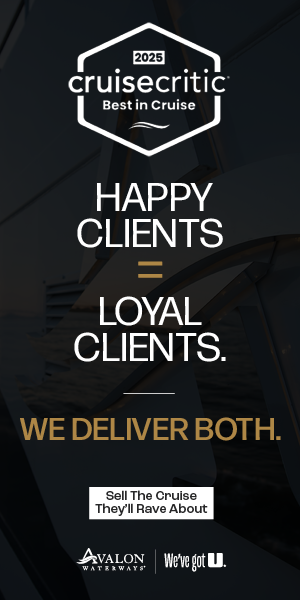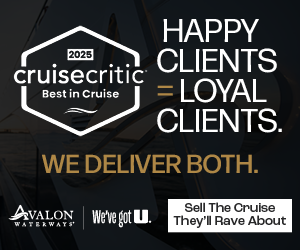Why Assumptions Can Undermine Your Bottom Line & How You Can Change Them
by Dori Saltzman
Photo: Shutterstock.com
Every day people make decisions based on assumptions. It’s part of being human and travel advisors are no different. Whether it’s a decision not to charge clients a planning fee or choosing to suggest the lowest-priced vacation option to a client, assumptions are at the heart of many business choices.
In a vacuum, assumptions aren’t bad. It’s only when they have a negative effect, like decreasing your business’ bottom line, that they become bad.
“Assumptions are neither good nor bad,” Andy Cohen, author of “Challenge Your Assumptions, Change Your World” and a Tedx speaker, told Travel Market Report. “An assumption is harmless until it’s acted upon.”
The problem is that many travel advisors make assumptions that reduce the amount of income they can make. Like assuming they’ll lose clients if they decide to charge a fee. Or assuming that if they start out offering the highest cabin category on a cruise ship, they’ll chase a potential client away.
“Many self-proprietors are uncomfortable asking for a fee. Its’ uncomfortable because they feel they’re going to be judged. Or they’re not worth it. Or the consumer won’t value it. They bring all these assumptions to the table,” explained Cohen.
But an assumption can be wrong as often as it can be right.
Challenging Your Assumptions
In order for travel advisors to use assumptions to their benefit, they first have to change their approach to decision-making.
“If assumptions are part of every decision-making process, to say ‘I shouldn’t assume’ is counterproductive,” said Cohen. “What I should be saying is, ‘Hmm, I’m making an assumption right now, perhaps I should explore further. Rather than believe this as it is, maybe I should test the waters a little.’”
That might mean asking a few customers for a fee, Cohen says. And, if the first person you ask rebuffs you, don’t assume the next person will, too.
Not sure if you’re making assumptions? Cohen advises to make a list of things you could do to grow your business. Then look at them to see if your reaction to them is based on assumption.
For instance, if your list includes selling more high-end river cruises, but your immediate reaction is “I can’t,” you’re most likely making an assumption.
“’I can’t’ is a cue that an assumption is in play,” Cohen said.
But he added that travel advisors don’t need to go all in 110% on rejecting assumptions. Test them. See if they hold up.
“One of the most dangerous assumptions that people make is the world thinks just like me. That’s something we constantly have to challenge,” Cohen said. “If you really think about it, if they thought like them, they’d all be travel advisors. I’m coming to you because I don’t think like you.”
Here are some of the most common assumptions travel advisors make and why those assumptions are most likely false.
Assumption: People Don’t Want to Pay a Travel Advisor a Fee
Truth: Clients That Understand Your Value Are More Than Happy to Pay a Fee
Celebrity Cruises’ senior vice president of sales, trade support and services, Dondra Ritzenthaler told Travel Market Report the assumption that travel advisors will lose clients if they try and charge a planning fee is one of the most common that she encounters.
“As a leader of the Celebrity brand, I go to all of the major conferences and it’s so interesting how some people charge fees and others don’t,” she said.
Ritzenthaler attributes this assumption to a lack of confidence in their own value. “Travel advisors are a great value proposition for consumers. They know the ships. They know the hotels. They know what airlines are reliable. They know because they’ve been doing this for a long time.”
Cohen agreed. “The reality is that the customer can always go direct. They come to you for a specific reason. And it’s probably service. It’s probably attention. It’s probably a comfort level. It’s probably security. And people, not everybody, but people are willing to pay for that.”
“Choose not to because of your business model. That’s okay,” Ritzenthaler said. “But don’t make the assumption that you can’t or that you won’t be successful if you do.”
Assumption: People Spend Money the Way I Spend Money
Truth: Everyone’s “Wallet” Is Different
Ritzenthaler calls it “selling from your own wallet.” Just because you may not be the type of person who doesn’t want to splurge on a suite, doesn’t mean your clients don’t want to.
“We want to be careful not to sell from our own wallet,” she said. “We have to sell from the consumer’s wallet… Let’s assume that the customer has wealth and don’t shy away from asking them to book The Retreat first.”
Ask questions if you’re unsure of their budget. If you don’t want to ask for a dollar figure, ask what their favorite hotel experience was or where they normally like to dine out. Ask if they like to splurge on a vacation. These answers will help you determine the size of their wallet, rather than selling from yours.
Assumption: Price Is a Barrier to Overcome
Truth: Clients Care About Value, As They Define It
Similar to the above, many travel advisors assume that pricing is a barrier for clients. As a result, they start low and try to upsell. And while price can be a determining factor, most people are looking to get the most value for their money.
“The predisposition that price is an issue may sell that experience short,” Steve Born, chief marketing officer for the Globus family of brands told TMR. “Value, ease and the experiences for the price is what’s most important. No one ever regrets investing in that perfect vacation.”
Ritzenthaler said it’s easier to start at the higher end and sell down – if you have to.
“The assumption is that you want to give them the lowest price because you think you’ve got a better chance of closing that sale. But in reality, you’re better off starting out with The Retreat and selling the benefits… and then, if the consumer says ‘I’m not sure I want to spend that much money,’ what you’ve actually done is showed the value of your knowledge.”
They’ll still book with you, albeit at the price that feels most comfortable for them. But by starting at the high end, you don’t cut out the opportunity to make the bigger sale.
Assumption: People Only Want to Visit Places Once
Truth: Everywhere, Even Bucket List Destinations, Can Be Visited Repeatedly
Many advisors assume if their client has been to Alaska before, they shouldn’t suggest another Alaska cruise. Same with a safari or the Galapagos or Asia.
But ask any travel advisor and they probably know someone who’s been to some of these places more than once.
“Instead, ask probing questions,” Ritzenthaler advised. “Have you been to Alaska? What was your experience like? Would you consider going there again?”
If a client loved a particular destination, suggest a different style of travel or a different destination within the larger area.
Assumption: River Cruising Is Slow & Passive
Truth: River Cruising Is Diverse Enough to Account for All Tastes
Despite its establishment as a major form of vacation travel, Born says the assumption that river cruising is slow and only for old people still exists among many travel advisors.
“Following a red sign around a European port, peering over the railing with a glass of Chardonnay, pointing at castles and then off to bed after dinner,” he said, describing what many still think of river cruising.
But today’s river cruise experience can be dynamic, engaged and active. “A daily stop in a quaint port offers an invitation for adventure. Steps away, the town comes to life with incredible excursions ranging from classic sightseeing to hand’s-on cultural immersion, and active options like hiking, kayaking and biking to experience destinations in totally new ways.”

























